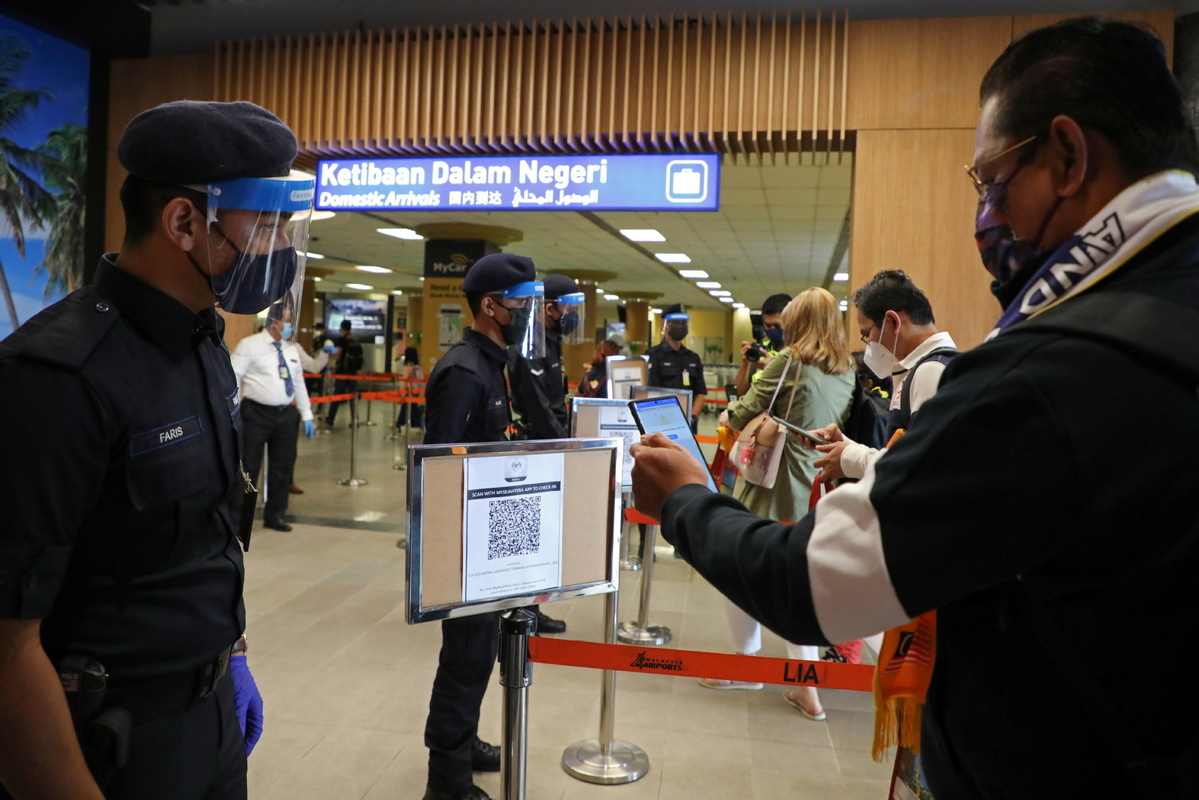Malaysia's transition to the endemic phase of COVID-19 is expected to sustain the country's economic rebound, with the move seen to boost domestic consumption and revive the tourism, hospitality and retail industries that were hit by the pandemic, analysts say.
Southeast Asia's third-biggest economy recovered last year, posting a 3.1 percent GDP growth as compared to a decline of 5.6 percent in 2020. Analysts said this growth momentum will be supported by Malaysia's move to reopen its border, allow quarantine-free travel and ease movement restrictions from April 1.
They also said Malaysia's high vaccination rate-nearly 80 percent of its more than 32 million population are fully vaccinated-and the continued enforcement of health protocols will help in reducing the risk of virus spread when the country reopens. This is crucial as the reopening coincides with the start of Ramadan, the holy month for the Muslim-majority country that is usually marked by fasting and communal worship.
Serina Abdul Rahman, visiting fellow at the ISEAS-Yusof Ishak Institute in Singapore, said despite the presence of the highly infectious Omicron variant, the high vaccination rate will ensure that most COVID-19 patients are asymptomatic or only experience mild symptoms.
"There are still deaths, but the economy needs to recover. If people don't die of COVID-19 and (the government) keeps the economy closed, then people will die of starvation or suicide," said Serina, alluding to how the lockdowns have affected mental health.
She noted the risks that come with the start of Ramadan and as such, each Malaysian needs to be responsible for their health and keep others safe by following the existing health protocols. These include the mandatory wearing of face masks and using a health code when entering public premises.
Lim Chee Han, a senior researcher at the think tank Third World Network in Kuala Lumpur, said the government has encouraged people to get booster shots even before the start of the Omicron wave. More than 65 percent of Malaysia's adult population have received booster shots as of Wednesday, according to official data.

A tourist scans a QR code to check in upon arriving at the airport as Langkawi reopens to domestic tourists, amid the coronavirus disease pandemic in Malaysia, on September 16, 2021. [Photo/Agencies]
Vaccination campaign
"Even at the peak of the Omicron-led pandemic wave here in Malaysia, the government can still manage the hospital admission load," Lim said. "The vaccination campaign makes a significant difference in terms of reducing healthcare facilities burden, especially for ICUs and ventilators. This is nothing like the Delta-led pandemic wave back in August last year."
He said unless a new and more infectious variant emerges, Malaysia is not likely to receive imported COVID-19 cases that can seriously threaten its public healthcare system.
Malaysian Prime Minister Ismail Sabri Yaakob said in his March 8 briefing that the economy's reopening is part of the government's exit strategy, enabling Malaysians to return to their normal lives after a two-year battle with COVID-19.
Starting from April 1, fully vaccinated travelers do not need to undergo quarantine upon arrival in Malaysia. But they will only need to get tested before their departure and upon arrival.
"I think it would also be fair to say that many of the (travelers) who would be allowed (to come in would be from countries) that have reasonable success in managing the strain of COVID," said Sanjay Mathur, ANZ's chief economist for Southeast Asia and India.
He said the tourism sector's recovery will also support the rebound in related industries and create new job opportunities.
Yeah Kim Leng, director of the Economic Studies Program at think tank Jeffrey Cheah Institute on Southeast Asia based in Kuala Lumpur, said the transition phase will bring more tourists to Malaysia, which will help revive its tourism sector-one of the country's biggest industries.
In 2019, the tourism sector contributed about 15.9 percent to the total GDP, according to government data.














